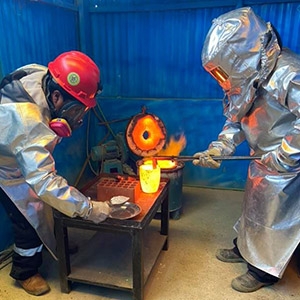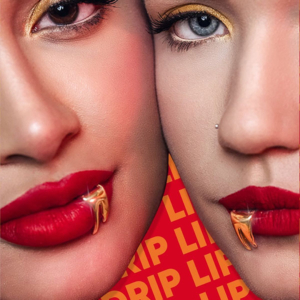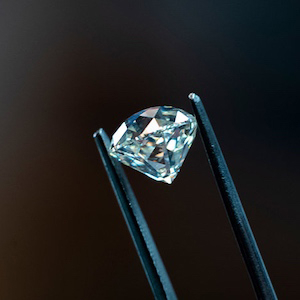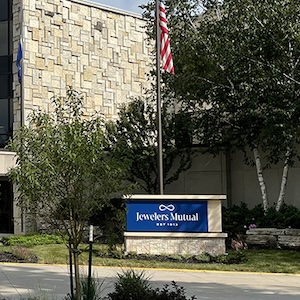
When Toby Pomeroy launched Mercury Free Mining (MFM) in 2017, the Portland, Ore.–based designer planned to offer $1 million to anyone who found a solution to remove poisonous mercury from small-scale gold mining. Since then, the quest for an answer has proven a bit, oh, mercurial.
The good news is, MFM has collected four methods that will likely let small-scale miners excavate gold without mercury. The bad news is, the organization hasn’t found an all-encompassing fix. And it probably never will. It seems that different kinds of sites require different extraction methods. (The $1 million prize is out, too.)
“I came into this with the vision that there would be a one-size-fits-all solution,” says Pomeroy, who serves as MFM’s executive director. “There are so many different ore types, and they respond so differently—it’s unlikely that we will come up with something that’s a breakthrough for everything.”
Moreover, some of the methods require energy—which isn’t always available for frequently impoverished small-scale miners. (Some methods are solar-powered.) And, of course, testing these methods requires travel, which the COVID-19 pandemic put on hold.
Still, Pomeroy is encouraged by all the worthy ideas that have come his way (and he hopes they keep coming)—as well as the increasing interest in the industry.
Recently, GIA awarded a $50,000 grant to MFM and the Alliance for Responsible Mining (ARM)—the group behind Fairmined gold—to pilot a program to mitigate mercury use at a site in Ananea, Peru.
MFM will test different solutions at the site, which will then be compared against mercury for how well they extract gold.
“Even this intermediate step is significant,” Pomeroy says. “I feel we’re on the verge of a breakthrough.”
The GIA grant will also go toward developing a traceable supply chain for mercury-free gold—a label Pomeroy hopes will eventually become as common other “-free” labels, like GMO-free food or cruelty-free cosmetics.
Still, developing that kind of supply chain, as well as making sure the solutions are properly distributed, will require significant resources, Pomeroy admits. And his group is still small. (In addition to GIA, the JCK Industry Fund and ring manufacturer Lashbook have provided financial support.)
“We are flying robot spaceships to asteroids because we have funding for it. But to get mercury out of gold mining hasn’t gotten the same support. Yet it affects so many more people.”
He notes there are about 15 million artisanal gold miners, who supply 20% of the world’s yellow metal. Most of those miners work with mercury, as it’s cheap, effective, and has been used for generations. But it’s also a nasty neurotoxin that damages miners’ health and eyesight, and contaminates the environment and nearby water sources.
“[T]here is no known safe level of [mercury] exposure,” wrote the National Institutes of Health in 2010. “It has toxic properties and severely affects the environment and humans, especially developing fetuses and infants.”
In 2019, The New York Times noted the persistent use of mercury in gold mining in Indonesia, despite it being officially outlawed.
“As gold makes its way around the world, so too does mercury—poisoning the air and food of people thousands of miles away,” the newspaper wrote.
There have been other articles about the issue, though Pomeroy admits awareness of it is low—which is why it’s the perfect time for the industry to come together and work toward a solution, before the public does find out.
“Just addressing this would be a huge feather in our industry’s cap,” he says, “instead of a chance for a great smudge.”
Mercury Free Mining will host cocktails at JCK Las Vegas on Aug. 28 from 6 p.m. to 8 p.m. at the Sands Expo Convention Center, Titian Room 2208.
Top: Miners testing gold nuggets (photo courtesy of the Alliance for Responsible Mining)
Follow JCK on Instagram: @jckmagazine
Follow JCK on Twitter: @jckmagazine
Follow JCK on Facebook: @jckmagazine





